REVEALED: AFL Comission will be actively involved in procuring funds for stadium
The AFL has committed to stand behind Tasmania and secure funding from the federal government to help build Hobart’s stadium. What that means for getting the bid across the line.
Sport
Don't miss out on the headlines from Sport. Followed categories will be added to My News.
THE AFL has committed to go into bat for Tasmania to secure funding from the federal government to help build Hobart’s “field of dreams” at Macquarie Point - a multi-purpose roofed stadium that would be home base for a new AFL team.
In the strongest indication yet of the AFL Commission’s support for Tasmania’s bid and what could be an historic 19th licence, CEO Gillon McLachlan confirmed the AFL would be actively involved in raising the money to build a state-of-the-art stadium.
The 18 club presidents and their CEOs saw Tasmania’s licence submission in a two-hour meeting at league headquarters on Monday.
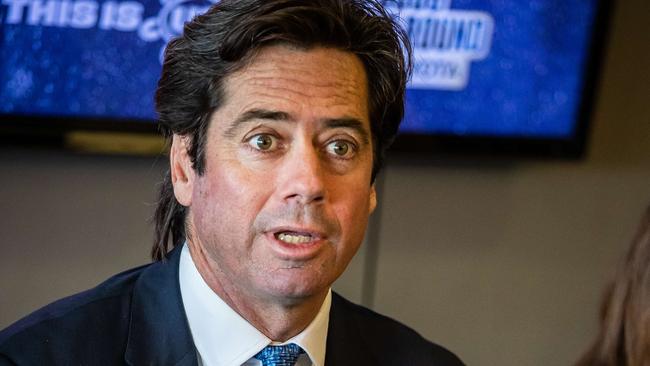
They now have between two to four weeks – the AFL is sitting tight on the time-line – to assess the bid before reconveningto give their vote on Tasmania’s bid.
In the meantime, Mr McLachlan said Tasmania – which has committed $375m of the expected $750m cost – will not have to payfor the entire stadium build at Macquarie Point.
“We and the Tasmanian government agree that a new stadium is important to the success of a new club and the Tasmanian economy- and we agree that we will solve that together at the right time,” Mr McLachlan said.
“The federal government has made no commitment at this stage and we haven’t asked them to make a commitment.
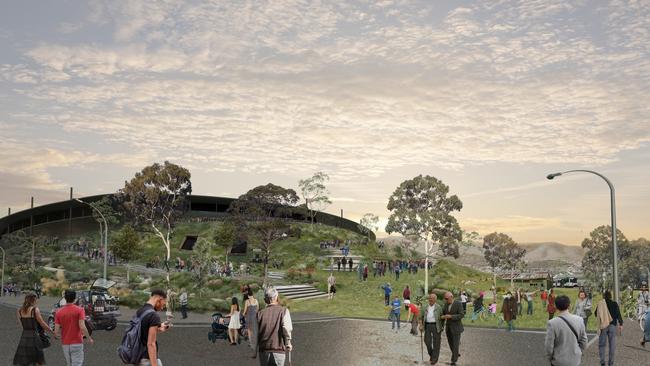
“We have briefed the federal government on the process and where we are at in looking at the business case for a 19th team.”
McLachlan said the AFL would work through the details of the Macquarie Point stadium build, including design and feasibility, and its anticipated timeline, with the state government.
“When we are at the point where there is more clarity around the stadium, we will have those conversations with the federalgovernment,” Mr McLachlan said.
“We have agreed to work together with the Tasmanian government and together we will solve the stadium issue.”
Tasmanian Premier Jeremy Rockliff said he remained confident about Tasmanian being granted an AFL licence.
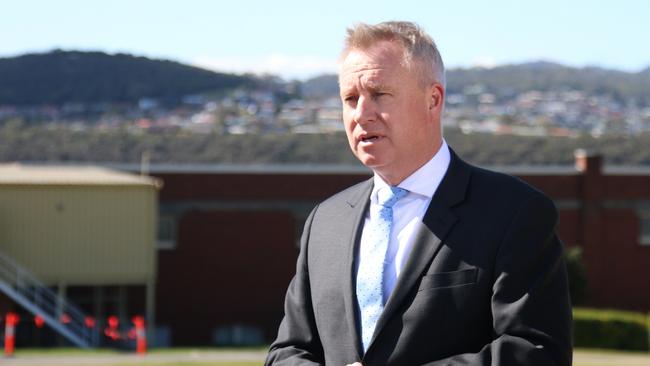
“I’m well and truly into the high 80s, (per cent) I’d have to say.”
The Premier had seen a survey backing him up.
“It said 91 per cent of Australian believe that Tasmania should have its place in the national competition,” he said.
“I don’t know why Gold Coast is so vehemently opposed – there’s been a lot of discussion about the investment into Gold Coast and whether or not that was a good or bad thing.
“They [AFL] should have made the call and put Tassie in the national competition back then but, all that aside, my argument to every single president is that Tasmania will make it a truly national competition, it will engender greater interest nationally and that will be good for the AFL.”
Mr McLachlan said the AFL’s job was to work with the Tasmanian government to put a case to the federal government on the merits of the stadium project.
“As far as this process goes, there will be ongoing dialogue between the clubs, the AFL and the Tasmanian government and we hope to reach a final decision once those discussions are had,” Mr McLachlan said.
How each AFL club is likely to vote in Tassie’s bid for own team
IT was a cash bonanza for the 18 AFL clubs last financial year as the league handed out a massive $301m in funding, with Gold Coast Suns taking home the lion’s share.
Given that magnitude of charity from AFL House, objecting to a Tasmanian team joining the competition while labelling it as a potential future “financial basket case”, as one president put it, is straightforward hypocrisy.
The AFL’s latest Annual Report, issued in March, illustrated how much its club distributions favoured AFL CEO Gill McLachlan’s pet projects, Gold Coast Suns ($26.3m) and Greater Western Sydney ($23.6m).
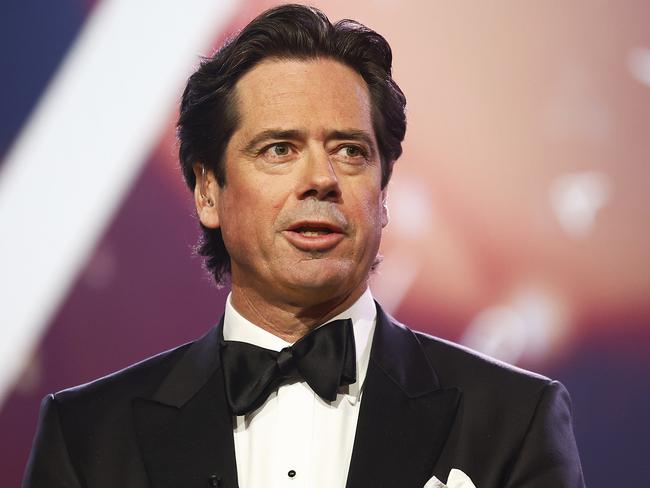
Based on that, it is jarring to hear GCS president Tony Cochrane try to shoot down our dreams.
“We cannot as a sport and an industry afford a 19th franchise under any circumstances,” Cochrane said.
“The money is not there. The depth of playing group is not there.
“We’ve got these two existing franchises being GWS and the Gold Coast Suns well established. We cannot afford to be spreading the money so thin that instead of having one or two that are struggling we end up with three or four that are struggling.
“From a business point of view that would be insanity. From a pure fan base point of view it would be nuts.”
Hobart-born St Kilda hero Nick Riewoldt, a Tasmanian AFL taskforce member, said the Colin Carter Report on Tasmania’s bid for an AFL team found the feasibility “stacks up”.
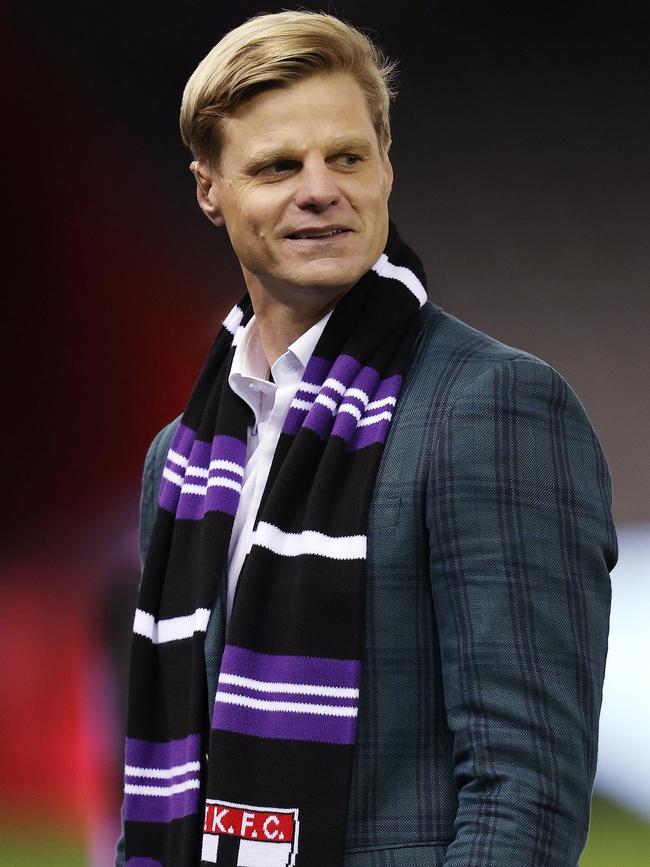
“Now it is incumbent on the AFL to, if they strongly believe Tasmania deserve a 19th licence, to lobby that in front of the presidents,” he said.
“We know it’s mixed. Some club presidents put their flags in the ground before the report had even been tabled.”
Adelaide chairman John Olsen’s board backs Tasmania “if the case stacked up”.
“We are predisposed to a traditional football state having a licence. We want to see the business case but we are predisposed to supporting Tasmania,” he said.
“It is a traditional football state and if we are national competition the state in its own right ought to have a team.
“We have made huge inroads in the Eastern Seaboard and put in substantial funding over the past couple of decades and in doing so we shouldn’t forget the states which have been traditional Aussie rules football states.
“I have no doubt should Tasmania undertake a major refurbishment of a stadium or put in place a new stadium, they would be amazed by the benefit that flows.”
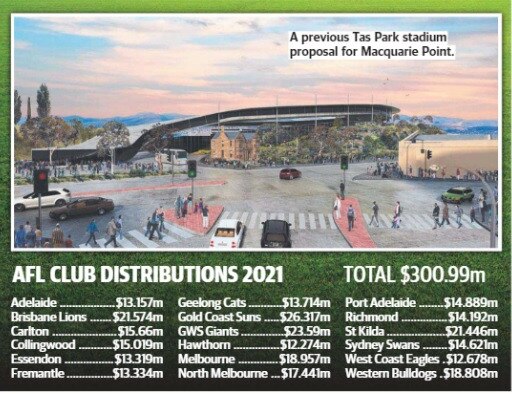
Close behind in the race for AFL hand-outs were Brisbane Lions ($22m), St Kilda ($21.5m), reigning premier Melbourne ($19m) and Western Bulldogs ($18,8m).
Hawthorn ($12.2m) got the least but made up for that with its $8.4m contract with the state government to play four games a year in Launceston, as well as a pre-season match, plus the match-day money it earns playing games at UTas Stadium.
Hawthorn president Jeff Kennett is not keen on a Tasmanian licence.
“We will take it to our board and come back and make a decision,” Kennett said.
Hawthorn’s Tasmanian co-tenant North Melbourne banked $17.5m from the AFL, as well as the $2.4m from the state government to play four times in Hobart, as well as its game-day earnings.
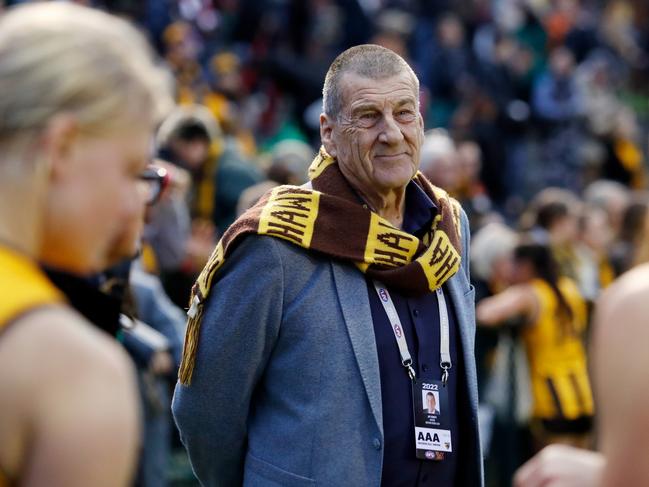
Collingwood’s president Jeff Browne is in Cochrane’s corner.
“Tasmania is a great football state, but we need to maintain that however many teams are in the competition that the competition is able to afford that number of teams and that we are well resourced for the competing clubs,” Brown said
THE PROCESS EXPLAINED
Tasmania has handed over its detailed Licence Bid Document to the AFL. The AFL will present the bid to its 18 existing clubs.
The clubs take it to examine the finer details.
Presidents meet back with the AFL executive to vote.
Likely announcement September 27-30.
NUMBER OF VOTES NEEDED
Tasmania must get 66 per cent support from the presidents.
WHAT’S IN THE DOCUMENT
● Cash-flows and operational costs
● Assumptions on membership numbers
● Government contributions
● AFL funding from annual club distributions, approximately $12m
● Private sector funding
● Fan demographics
● Game contributions
● Development pathways
● The list-build
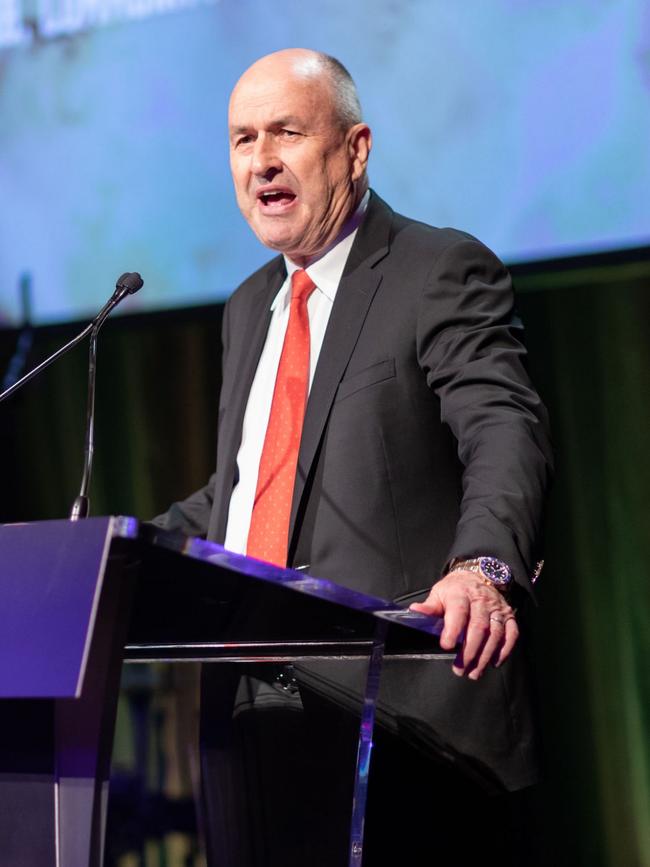
THE STADIUM
A $750m covered multi-purpose venue at Macquarie Point on Hobart’s waterfront. Features a retractable roof, seating for 23,000 fans, state-of-the-art corporate facilities, player change rooms, gymnasiums, pools, medical rooms, administration offices, television studio and media facilities. Easy walk from CBD.
THE VOTES
Here’s how the votes are likely to stack up:
YES
Adelaide
Brisbane Lions
Carlton
Essendon
Fremantle
Geelong Cats
Melbourne
North Melbourne
Port Adelaide
Richmond
St Kilda
West Coast Eagles
Western Bulldogs
NO
Collingwood
Gold Coast Suns
Hawthorn
Sydney Swans
MAYBE
GWS Giants





